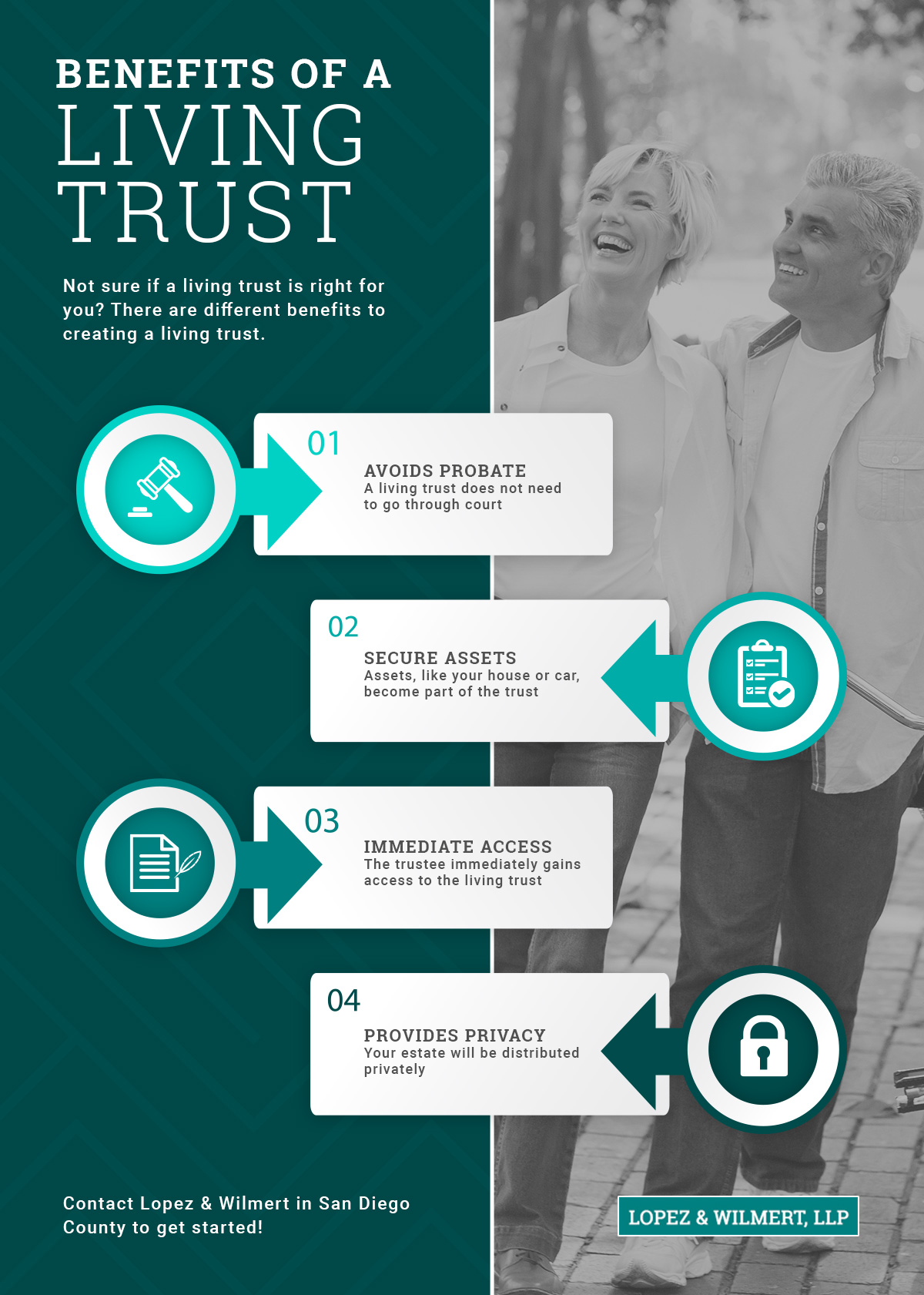There are a lot of different ways you can plan for your estate once you’re gone, like drafting up a last will and testament or forming a living trust.
Our estate law team at Lopez & Wilmert, LLP in San Diego County is here to help you navigate probate and estate law, along with the different intricacies that come from those processes. In today’s blog, learn more about what a living trust is and contact our team to schedule a consultation with one of our lawyers.
What Is a Living Trust?
Whether you’re planning out your estate or working through the estate of a family member that has passed, you might notice, it’s important to understand all of the different ways that different assets can be passed down or secured. One of those ways is a living trust.
A living trust is created while that person is still alive with a designated trustee that is given the ability to manage the assets in that trust. This means that when that individual dies, the living trust passes on to the assigned beneficiary or beneficiaries, usually bypassing the probate process. If you’re unfamiliar with probate law, take a look at our What Is Probate? blog post.
Different types of assets can be placed into a living trust, including:
- Real estate property
- Saving and other bank accounts
- Cars and other vehicles
- Fine Art
- Life Insurance
- Jewelry
- Stocks and Bonds
- Business Interests
To gain a better understanding of what assets you can put into a living trust, work with a lawyer familiar with probate and estate law.
Benefits of a Living Trust
Not sure if a living trust is the right option for you or your estate? There are different benefits that come from choosing a living trust.
 We already touched on probate in the above section, but a living trust will avoid probate. This means that after the trustee passes, the living trust will pass on to the next beneficiary without having to go through court proceedings.
We already touched on probate in the above section, but a living trust will avoid probate. This means that after the trustee passes, the living trust will pass on to the next beneficiary without having to go through court proceedings.
Beyond that, a living trust provides other benefits like ensuring that assets are secure, offering the beneficiaries immediate access to those assets when the other trustee passes away, and providing privacy around what assets are in a living trust. We do acknowledge that a living trust might not be the best solution for everyone’s assets, but you can always start with an estate lawyer to go over your estate and see if a living trust would be the right choice for you!
Work With Our Estate Law Team
If you are now the beneficiary of a living trust, or need to speak to an estate lawyer about your living trust, Lopez & Wilmert, LLP in San Diego County is here to help. Our team has experience with probate and estate law and can help you set up a living trust or work through the technicalities of becoming a beneficiary of a living trust.
Use our blog as a resource to learn more about probate and estate law:


